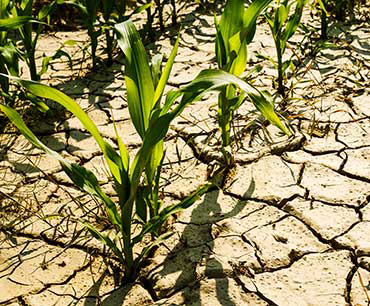Save the Children International has said that the world is one degree warmer, which means there is an increase in negative impacts on human lives.
The international organisation also said that fossil fuels are a contributing cause of environmental damage and that Nigeria and other African nations should abandon them.
The organisation, therefore, urged the Federal Government to approve more funding for safeguarding the environment to mitigate the dire consequences of climate change.
Director of Advocacy, Amanuel Mamo, disclosed this during the COP28 simulation event on Thursday in Abuja, urging stakeholders to take urgent action before it is too late.
Mamo further said that the climate crisis is the biggest challenge of the contemporary world and a grave threat to children and their rights.
He noted, “According to experts in the area, the earth is now one-degree centigrade warmer than the pre-industrial period, with evidence of high and increasing negative impacts on human lives.
“As a result, in the coming years, droughts are expected to intensify, rainfall variability is projected to increase, extreme weather events will persist, new human and livestock diseases are projected to increase, new conflicts over decreasing resources will increase, and more people will be displaced by the rising oceans, floods, wildfires, droughts, expanding deserts, and the like.
“The first thing we should do is develop responsible behaviour to protect the environment.
“So we should be cautious and deliberate in terms of how we minimise polluting the environment—the use of environmentally unfriendly materials, plastics.
He pointed out that children’s rights might not even survive a global climate catastrophe.
Therefore, “we need to increase investment in the climate crisis. The Ministry of Environment and all other ministries, agencies, and departments, I think, should deliberately increase the cost or budget for the environment.
“So we should be cautious and deliberate in terms of how we minimise polluting the environment. the use of environmentally unfriendly materials, such as plastics. The government needs to be deliberate in terms of investing more in environmental protection.
“And I would like to call upon states and governments who are meeting in Dubai to really listen to the voices of children. What are they saying and demanding from governments around the world? I think that should be well listened to and addressed as well,” he said.
A climate change ambassador at the simulation, Hamisu Maigari, explained that it is good to have Nigeria in that movement for climate change call to action because “we have experienced the worst climate crisis in different parts of the states; we have suffered a lot, houses were washed, and agriculture has been diminished.
“Children are suffering; the repercussions are keenly felt by children. It is really good to have us as children and to be in the movement to end the climate change crisis in Nigeria,” he said.
Also speaking, Kubra Kinandi noted that as children, “We are affected in a very negative way; at the time they cannot go to school or have access to schools, they cannot go out and play because of flooding, and this leaves them homeless.
























